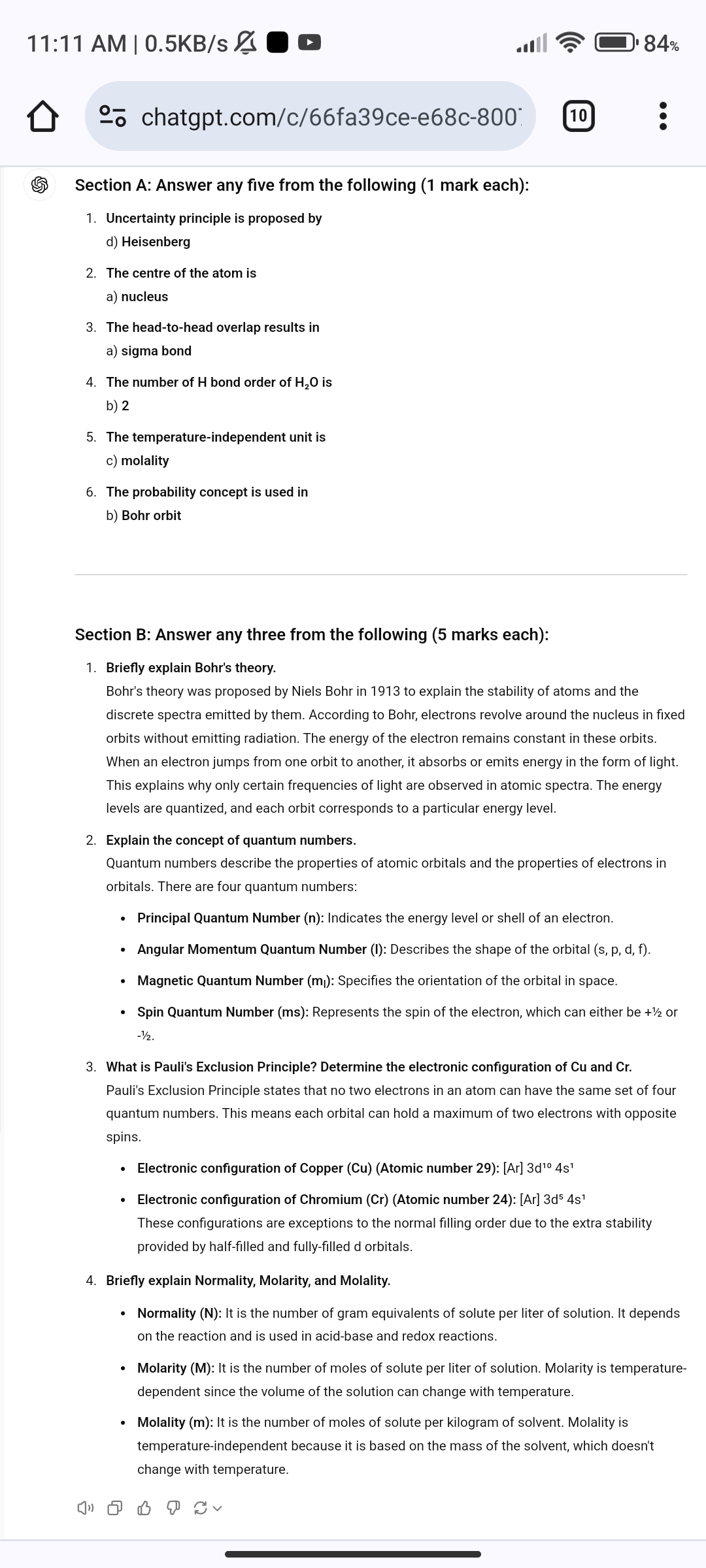Section A: Answer any five from the following (1 mark each): 1. Uncertainty principle is proposed by 2. The centre of the atom is 3. The head-to-head overlap results in 4. The numb... Section A: Answer any five from the following (1 mark each): 1. Uncertainty principle is proposed by 2. The centre of the atom is 3. The head-to-head overlap results in 4. The number of H bond order of H2O is 5. The temperature-independent unit is 6. The probability concept is used in Section B: Answer any three from the following (5 marks each): 1. Briefly explain Bohr's theory. 2. Explain the concept of quantum numbers. 3. What is Pauli's Exclusion Principle? Determine the electronic configuration of Cu and Cr. 4. Briefly explain Normality, Molarity, and Molality.

Understand the Problem
The question consists of a set of statements and questions related to basic principles in chemistry and atomic theory. It presents various topics including the uncertainty principle, orbit structures, bond order, temperature-independent units, the probability concept in atoms, and further inquiries on Bohr's theory, quantum numbers, Pauli's exclusion principle, and definitions of normality, molarity, and molality.
Answer
Section A: 1. Heisenberg, 2. nucleus, 3. sigma bond, 4. 2, 5. molality, 6. Bohr orbit; Section B: Detailed in document.
Answer for screen readers
More Information
Bohr's model introduced quantized orbits for electrons, explaining atomic spectra. Quantum numbers are essential in defining the properties and behavior of electrons within these orbits. Pauli's principle is crucial in quantum mechanics, impacting electronic configuration, as observed with Cu and Cr.
Tips
For electronic configurations, remember that chromium and copper have unique configurations due to stability provided by half-filled and fully-filled d orbitals.
Sources
- Heisenberg's Uncertainty Principle - Chemistry LibreTexts - chem.libretexts.org
- Probability: The Heisenberg Uncertainty Principle | Physics - courses.lumenlearning.com
AI-generated content may contain errors. Please verify critical information